Active projects
Active projects
Active projects
Cinema and Movie Audiences in the Nordic Region, 1930s-1950s
Cinema and Movie Audiences in the Nordic Region, 1930s-1950s
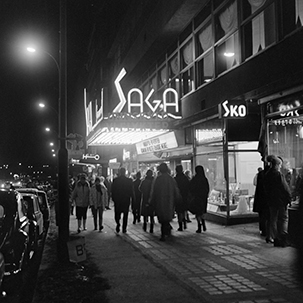
Oslo Museum.
The transnational network building project "Cinema, War and Citizenship at the Periphery: Cinemas and their audiences in the Nordic countries, 1935-1950", funded by the Nordic Research Councils, explores the social and societal functions of cinema in the mid 20th century.
By analysing audiences and their movie-going practices, film programming and distribution patterns we hope to identify linkages and networks, similarities and differences across Northern Europe.
Contact person: Maria Fritsche
COST-FOSTREN
COST-FOSTREN

/Øyvind Thomassen
COST-FOSTREN aims to reduce the degree to which mental health services use coercion in hospital and community mental health services. Many people receiving mental health care are subjected to coercive practices such as outpatient commitment in the community and physical restraint in hospital. Such practices can violate human rights. The researchers aim to find alternative treatments to coercion.
Contact person: Øyvind Thomassen
Daily Life and Culture as a History Field - Problems and Opportunities (Dagligliv og kultur som historiefelt - problemer og muligheter)
Daily Life and Culture as a History Field - Problems and Opportunities (Dagligliv og kultur som historiefelt - problemer og muligheter)

Daily Life and Culture as a History Field - Problems and Opportunities focuses on "ordinary people" and their "lives". The research is primarily based on physical remains of ordinary lives, as well as memory and oral tradition, to use sources both material and immaterial. While it is fortunate that reasoning, perspectives, and methods have become freer and more transparent, we continue to engage in critical reflection of what we do.
Contact person: Ingar Kaldal
Changes in cultural thinking about work, power and community, 1950 until current times (Endringer i kulturelle tenkemåter om arbeid, makt og fellesskap fra 1950 til i dag)
Changes in cultural thinking about work, power and community, 1950 until current times (Endringer i kulturelle tenkemåter om arbeid, makt og fellesskap fra 1950 til i dag)

The research focusses on how the cultural significances and ways of thinking concerning work, power and community have changed since 1950 and into current times. In 2014, the researcher had a book published in a more limited field regarding how we have changed our thinking about harassment. It concentrates on the period post 1977, when the new Working Environment Act brought awareness about psychosocial working conditions.
Contact person: Ingar Kaldal
Fate of Nations
Fate of Nations
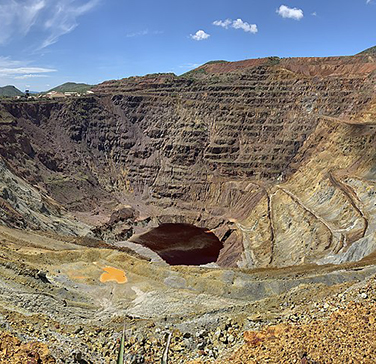
Creative Commons —
Attribution-ShareAlike 4.0
International
— CC BY-SA 4.0
Fate of Nations is a dynamic research group comprised of historians of a varied background. The focus is on natural resources. How have the authorities and the commonality managed this part of the economy? What is the current situation?
The international team members have published a large number of books and peer-reviewed articles on various natural resources, including bauxite, aluminium, tin and petroleum.
Contact person: Mats Ingulstad
Grey Zones of the Occupation: Czechoslovaks in German uniform and Norwegian society during WW II
Grey Zones of the Occupation: Czechoslovaks in German uniform and Norwegian society during WW II
The project takes its outset in the approximately 13 000 Wechmacht soldiers who were conscripted in Czechoslovakia. The aim is to scrutinize the national composition of the Wechmach soldiers in Norway and Finland.
Contact person: Hans Otto Frøland
Histories of Refugeedom in the Nordic Countries
Histories of Refugeedom in the Nordic Countries
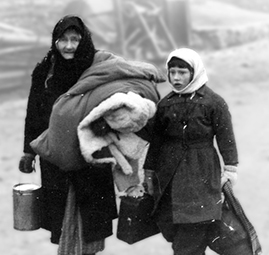
Hjemmefrontmuseum
How have the histories of forced migrations shaped the Nordic region? These workshops bring together prominent Nordic scholars who draw attention onto a largly neglected research field.
Contact person: Hans Otto Frøland
Internal Fortress: Regulating European Freedom of Movement within the Nation-State, 1950-1980
Internal Fortress: Regulating European Freedom of Movement within the Nation-State, 1950-1980
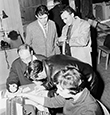
Fotoarchiv Ruhr Museum
This project will trace migration history in the European Economic Community (EEC), which preceded today’s European Union (EU). It focuses on the period when freedom of movement was first implemented in the EEC, from the 1950s to the 1970s, exploring how this policy shaped social relations within the member states.
Contact person: Madeleine Dungy
Missing Girls
Missing Girls

In many European countries girls were regarded as being of less value than boys. The Missing Girls project investigates if this discrimination caused a higher mortality rate among female children. Several factors contributed: Were they more likely to suffer from undernutrition than their brothers were? How hard did they have to work, and did they receive adequate health care when they were ill?
Contact person: Francisco Javier Beltrán Tapia
Mission Mjøsa (Oppdrag Mjøsa)
Mission Mjøsa (Oppdrag Mjøsa)

Nordahl
Pedersen
Mission Mjøsa is a research program which aims to facilitate sustainable use of Mjøsa as an ecosystem, while at the same time maintaining the ecosystem’s structure, function, productivity, socially critical infrastructure and natural diversity.
Contact person: Mats Ingulstad
The Prison of Madness
The Prison of Madness
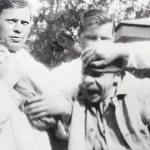
Justismuseet
The Prison of Madness project studies the history of forensic insanity in Norway in the period 1800-2020. The academic focus is on the connection between mental illness and crime.
Contact person: Øyvind Thomassen
Triple Deep
Triple Deep
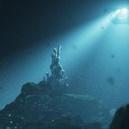
Triple Deep draws attention to deep sea mining:
- Is it possible to retrieve important minerals in a sustainable manner?
- Does it pay off to ruin the mainly unknown and unique ecology of the deep oceans in an attempt to solve the climate crises?
Contact person: Mats Ingulstad
Wehrmacht and SS- and Police Courts in Norway during World War II
Wehrmacht and SS- and Police Courts in Norway during World War II
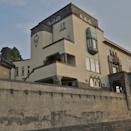
German Wehrmacht courts played a central role as instruments of occupation in Norway during World War II. Norwegian civilians and German soldiers were brought before military tribunals. The punishments handed out were often severe. This project investigates the sentencing practices of these courts and compares them to the prosecution carried out by the SS and Polizeigericht Nord (IX).
Contact person: Maria Fritsche

